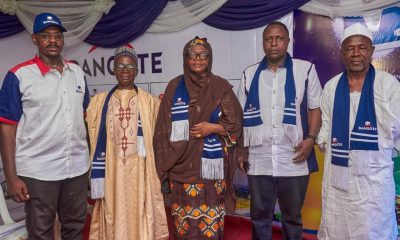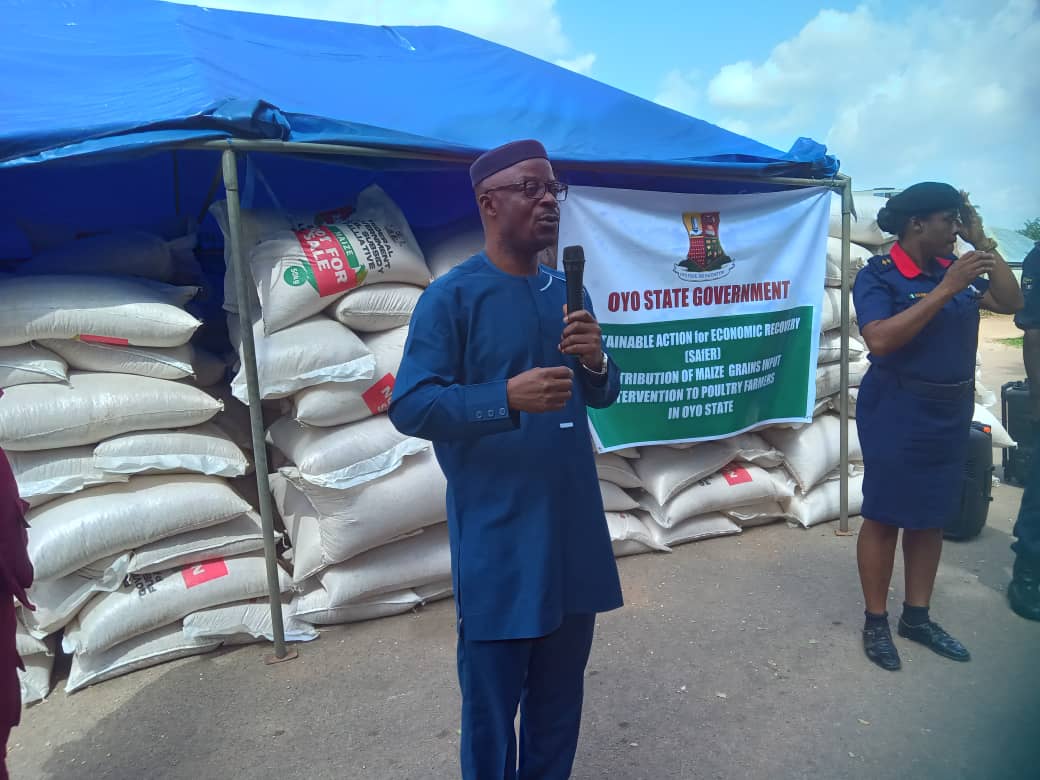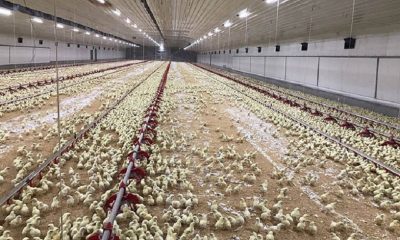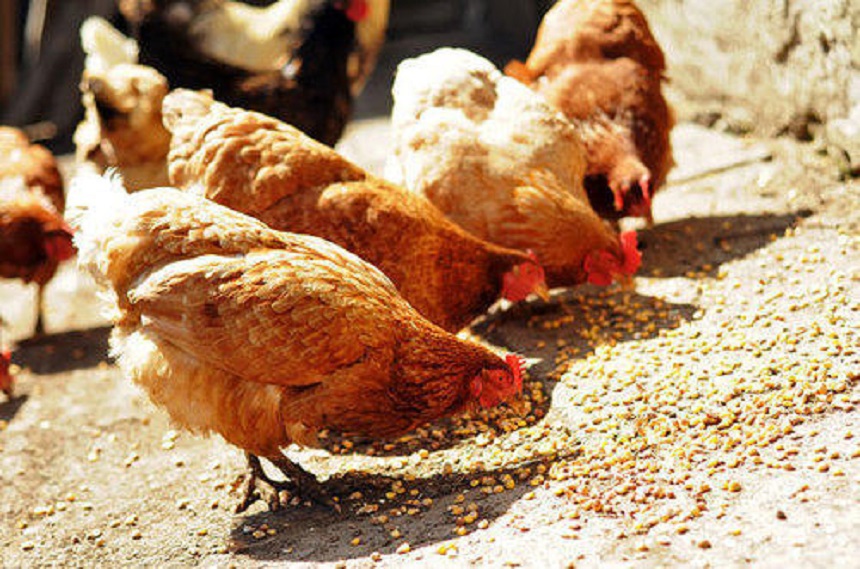General
Poultry Farmers Laud School Feeding Programme
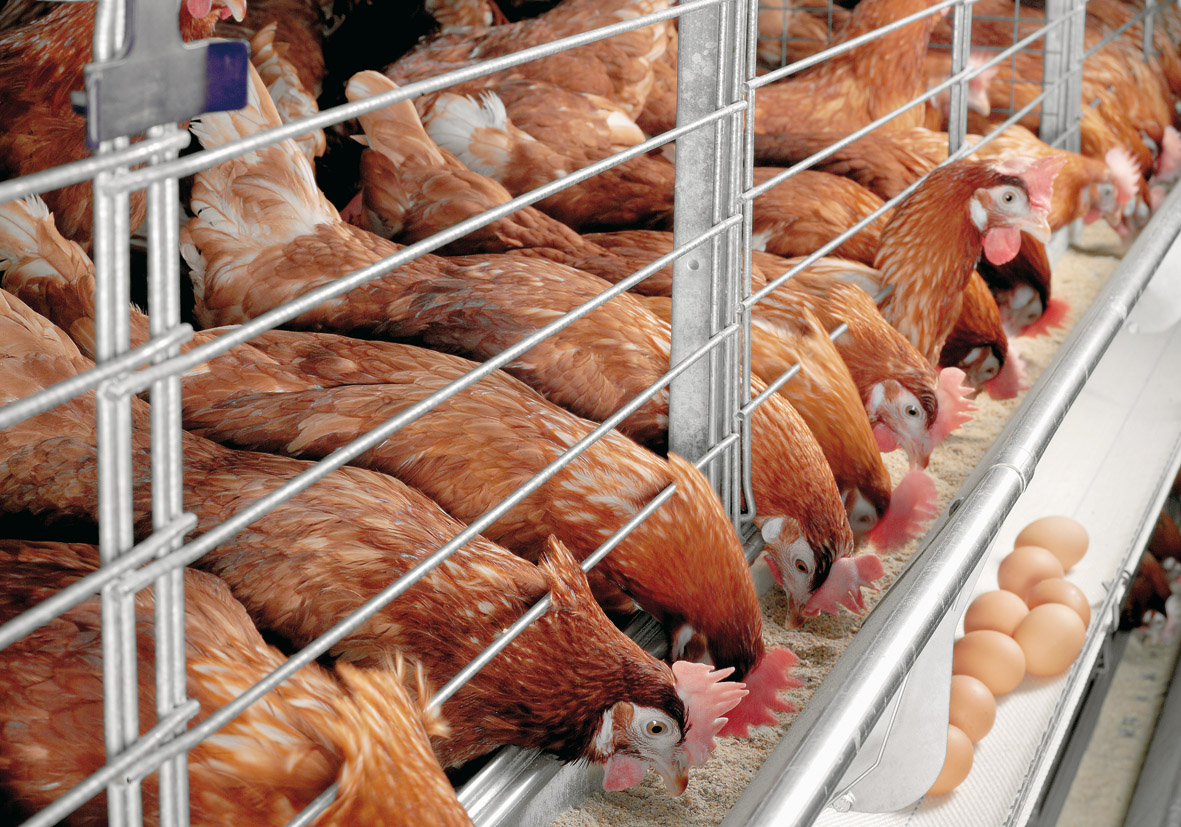
By Dipo Olowookere
The National Home-Grown School Feeding Program (NHGSFP) of the President Muhammadu Buhari administration has been lauded for revitalising the livestock sector.
According to poultry farmers across the country, the scheme has generated more income for participants as well as improved the nation’s economy.
Vice Chairperson/Egg Aggregator, Poultry Association of Nigeria (PAN), Kaduna State chapter, Hajiya Binta Adamu, explained that using PAN members to collect and supply eggs for the feeding programme in the State has helped in spreading wealth and fostering unity among members.
She disclosed that since the commencement of school feeding in Kaduna State in 2017, PAN has grown in leaps and bounds with initial sceptics now part of the scheme.
“The idea of using PAN members to collect and supply the eggs is a strategy that helped in spreading wealth and also carry members along. Since the advent of the NHGSFP, membership of PAN Kaduna State chapter has increased from 982 registered members to about 2000 members,” said Adamu.
She further disclosed that the initiative has led to increased production of eggs in Kaduna, with farmers and other players in the supply chain smiling to the banks.
Adamu explained that “Kaduna State joined the National Home-Grown School Feeding Programme (NHGSFP) on 14 July 2017 and the aggregator supplies 35,000 crates of eggs weekly. This quantity of egg is being mopped from big registered and small unregistered poultry farmers as well as women co-operatives across the 23 local government areas in the State, as there is no way one person can supply such massive number of eggs every week.
“Most of our farmers who had difficulty in selling their eggs and some selling on credit in the open market suddenly regained their liberty when we started mopping their eggs and paying them instantly. The number of farmers who currently supply eggs to the NHGSFP in Kaduna State stand at over 500 persons; this includes small farmers that supply between five to 50 crates on a weekly basis. In Kaduna State, eggs are in high demand and are the key in poultry farming as farmers are increasing their production.”
Adamu admitted that though there are challenges caused by market forces including the high cost of raw materials that result in high cost of egg production, “the distribution network for egg supply to the NHGSFP in Kaduna State is seamless.”
Also speaking, proprietor of Epac Farms, Oyo State, Ms Aishatu Ibrahim, disclosed that the benefits of supplying eggs for the school feeding programme in the State has not been limited to poultry farmers alone, but has extended to commercial drivers as well as bakeries.
She recalled that she knew nobody at the State Office of the School Feeding Programme but only applied as an egg supplier after seeing an advert. She was chosen as an egg aggregator after a thorough screening, then trained and tasked with getting other farmers on board.
“Right now, we have nothing less than 120 farmers across the State that we work closely together on the HGSFP in Oyo State. Importantly, the value chain has also trickled down to the Oyo State chapter of the National Union of Road Transport Workers. The drivers on the HGSFP scheme are numerous because we depend on them for transporting the farm produce from local farms to the point of supply,” she said.
Ms Ibrahim added that since school feeding commenced in Oyo State, 7910 crates of eggs are purchased weekly and that, to protect poultry farmers from losses during school breaks, an arrangement was made with some members of the State Bakers Association.
She said, “we also work closely with the Bakers Association. When schools are on holidays, these bakers buy the farm produce from the poultry farmers engaged in the HGSFP scheme. This approach helps our farmers a lot in reducing their risk.”
The School Feeding Programme is one of the Social Investment Programmes of President Muhammadu Buhari’s administration overseen by the National Social Investments Office (NSIO). It was launched in 2016 with over nine million pupils in classes 1 to 3 currently benefitting in almost 50,000 public primary schools across 26 States.
In a document released earlier this month to highlight the achievements and critical areas of the economy that the School Feeding Programme has positively impacted on since its launch in 2016, the NSIO had disclosed that 138,000 birds and 6,800,000 eggs worth N201 million and N204million respectively are purchased weekly from members of the Poultry Association of Nigeria in the various States.
General
IBEDC Promises Stability, Growth After Board Restructuring

By Adedapo Adesanya
The Ibadan Electricity Distribution Company (IBEDC) has announced the reconstitution of its board following the resignation of three nominees of the Asset Management Corporation of Nigeria (AMCON), promising growth and stability.
Earlier this week, the disco, which serves Oyo, Ogun, Osun and Kwara States, as well as parts of Ekiti, Kogi and Niger States, unveiled its new board led by the new chairman, Mr Tunde J. Afolabi.
The newly constituted board include Mr Ayodeji Ariyo Gbeleyi, with Mr Michael I. Magaji as Alternate Director; Mr Taiwo Afolabi; Professor Oladapo Afolabi; Mr Tunde Fayinka; Mr Oluwaseyi Akinwale and Mr Adeolu Ijose.
According to the chairman, the emergence of a new core investor and the reconstituted board marks a significant milestone in the company’s corporate journey and signals a renewed strategic direction focused on stability, continuity and sustainable growth.
“This transition represents renewal, not rupture. It represents investment, not instability. It represents partnership, not division. Our goal is to strengthen governance, enhance operational performance, deepen capital investment and deliver improved service to customers across our franchise areas,” he added.
Mr Afolabi, while addressing customers directly, assured them that there would be no avoidable service disruptions as a result of the transition, stating that all IBEDC offices will remain open, while field operations will continue uninterrupted.
“The new core investor has committed to sustained capital investments in feeder rehabilitation and expansion, transformer upgrades and replacements, injection substation improvements, and the replacement of obsolete network components,” he stated.
He added that IBEDC plans to accelerate the integration of advanced digital and operational technologies, disclosing that these include enhanced outage management systems, strengthened billing platforms, expanded smart metering deployment, and digitised customer engagement channels aimed at improving transparency and service responsiveness.
On workforce stability, the chairman emphasised that there will be no job losses as a direct result of the transition, noting that the board, under his leadership, is committed to employee welfare, improved work tools, modern safety equipment, and technology upgrades to support field efficiency, while maintaining high performance standards.
Mr Afolabi also pledged proactive and structured engagement with regulators, including the Nigerian Electricity Regulatory Commission (NERC) and the Nigerian Electricity Management Services Agency (NEMSA), underscoring its commitment to full regulatory compliance, strengthened governance frameworks, transparency and accountability.
Furthermore, he reaffirmed the commitment of the distribution company to structured and timely payment cycles for vendors and suppliers, recognising their critical role in maintaining network stability.
With the new board in place, he insisted that IBEDC is poised to deepen operational excellence, strengthen financial sustainability, and position itself firmly on the path to becoming Nigeria’s leading power distribution company—powering progress across its franchise with unity, confidence and innovation.
Established in November 2013 following Nigeria’s power sector privatisation, IBEDC operates the largest distribution network serving the highest customer population within Nigeria’s electricity distribution landscape.
General
Eyesan Promises Enhanced Transparency, Digital Transformation at NUPRC

By Adedapo Adesanya
The chief executive of the Nigerian Upstream Petroleum Regulatory Commission (NUPRC), Mrs Oritsemeyiwa Eyesan, has promised to enhance transparency and ensure that the NUPRC’s internal communications are fully digital.
Mrs Eyesan said this when the Executive Secretary of the Nigeria Extractive Industries Transparency Initiative (NEITI), Mr Musa Adar, visited the commission’s corporate headquarters in Abuja.
“We have set for ourselves a 60-day programme to digitise our interactions and communications within the commission. I can assure you that once we get to day 60, there will be no paper trail within the Commission. All our transmissions will be electronic, which also means speed is assured. It means we will be able to trace where we have hiccups,” Mr Eyesan said.
The NUPRC boss said digitising processes often leads to better results, like the enforcement of payments of royalties.
“I can tell you without a shadow of doubt that for royalty payments, the default rate was enormous prior to 2025 when the Commission went live on the system. Now, compliance has improved,” Mrs Eyesan said.
The NUPRC boss sought a deepened relationship with NEITI, which will foster transparency, especially amid the 2025 Licensing Round.
In his remarks, the NEITI’s scribe said there was a need for the NUPRC to carry the agency along in its operations as this would not only enhance transparency but also deepen investor confidence.
Mr Adar also urged the commission to be firm on oil companies that run afoul of the Petroleum Industry Act.
Speaking on the Extractive Industries Transparency Initiative, Mr Adar asked that the NUPRC actively participate in the 2026 EITI flagship conference, which will provide the Commission with better insights into the standards that guide EITI implementation.
The NEITI boss also sought support from the Commission in the area of data sharing, which will enhance the operations of the agency.
“We are here to seek understanding, and we must collaborate,” Mr Adar said.
General
Tinubu Tasks Acting IGP Disu to Restore Peace, Strengthen Security Nationwide

By Modupe Gbadeyanka
The acting Inspector-General of Police (IGP), Mr Tunji Disu, has been charged to do everything within his powers to restore peace and strengthen security across the nation.
This task was given to the new police chief by President Bola Tinubu after being decorated at the State House in Abuja on Wednesday.
Mr Disu was chosen to succeed Mr Kayode Egbetokun on Tuesday. His appointment is expected to be approved by the Nigeria Police Council and confirmed by the Senate next week.
President Tinubu described Mr Disu’s appointment as coming at a critical moment, urging him to rebuild public confidence in the police’s capacity to do their job in collaboration with other security forces.
“I made this decision for you to assume this responsibility. I know your record. I saw the dedication you exhibited while you were in Lagos when I was governor,” the President said.
“Lead firmly but fairly, demand professionalism at every level and ensure that the safety of lives and property remains our highest priority. It’s a daunting challenge. I know you can do it. You have my word, you have my full support,” he added.
Mr Tinubu urged him to advance the security pillars of his administration’s Renewed Hope Agenda. He expressed confidence in the Acting IGP’s discipline, operational experience and leadership capacity.
“Nigeria is challenged with banditry, terrorism and other criminal activities. You will be part of the thinking and innovation to overcome them,” the President said, reaffirming his belief that Nigeria would prevail under a committed leadership.
The President also paid tribute to Mr Egbetokun, who was present with his spouse, saying, “We are a grateful nation. Nigeria appreciates your contribution to maintaining law and order.”
He urged Egbetokun to be ready to offer useful advice to his successor and wished him and his family peace, good health and success in future endeavours, noting,
“You have not succeeded without a good successor. His success will also be part of your legacy.”
Mr Tinubu urged all security stakeholders to work collectively to safeguard lives and property during this critical period.
-

 Feature/OPED6 years ago
Feature/OPED6 years agoDavos was Different this year
-
Travel/Tourism10 years ago
Lagos Seals Western Lodge Hotel In Ikorodu
-

 Showbiz3 years ago
Showbiz3 years agoEstranged Lover Releases Videos of Empress Njamah Bathing
-

 Banking8 years ago
Banking8 years agoSort Codes of GTBank Branches in Nigeria
-

 Economy3 years ago
Economy3 years agoSubsidy Removal: CNG at N130 Per Litre Cheaper Than Petrol—IPMAN
-

 Banking3 years ago
Banking3 years agoSort Codes of UBA Branches in Nigeria
-

 Banking3 years ago
Banking3 years agoFirst Bank Announces Planned Downtime
-

 Sports3 years ago
Sports3 years agoHighest Paid Nigerian Footballer – How Much Do Nigerian Footballers Earn


